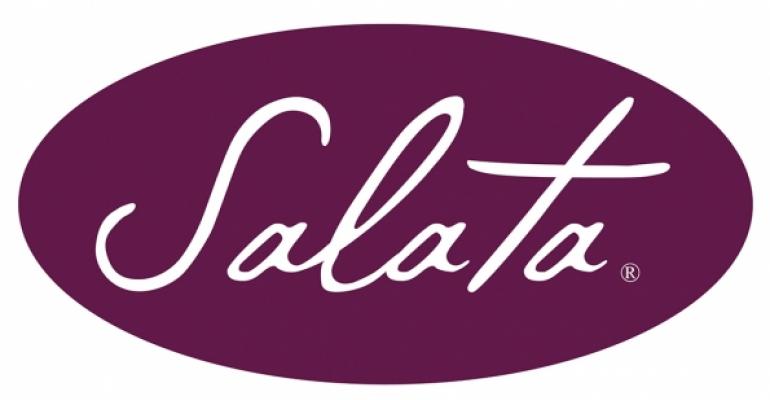Salata, a tossed-to-order salad chain, was founded by Berge Simonian and Tony Kyoumjian in October 2005 and today has 46 locations in Texas, Illinois and Southern California.
Simonian developed the concept after noticing how busy the salad tossing station was at his Houston full-service restaurant, Simon’s. He decided to focus on that area, and Salata soon had lines out the door.
“People didn’t mind being the 40th or 50th person on the line because they wanted it,” Simonian said.
See profiles of the other Next 20 standout brands
The menu is made up of salads, wraps and soups, along with soft drinks, cookies and brownies. Wraps start at $7. Salads start at $7 for a small and $8 for a large. Chicken or vegan protein (quinoa, falafel or tofu) can be added to small salads or wraps for $2 and turkey or seafood can be added for $3. Proteins for large salads are $1 more. All prices include tax.
More than 40 toppings are included in the price and include fruit, vegetables, cheese, nuts, croutons, sesame sticks and chopped bacon. The chain’s 10 different dressings are manufactured by the company and distributed through its broadline distributor, along with its three soups — tomato basil, tortilla and broccoli.
The average per-person check is $13.50 including tax, and each location serves around 2,200 customers per week.

Salata’s franchisees are mostly former customers who were excited by the brand. Now about two-thirds of the locations are franchised and Simonian hopes to keep it that way. He also wants to make sure that the corporate and manufacturing facilities can manage growth. For that reason he temporarily stopped opening locations in September of 2013. New restaurant openings have resumed, however, with a new restaurant that opened in downtown Houston last month.
Keys to success:
Strong corporate support: Salata is investing in the future of its brand and is in the process of moving its headquarters from a 3,000-square-foot space to a 35,000-square-foot office that will have a training restaurant for franchisees and trainers as well as the manufacturing facilities for its dressings, soups and marinades.
Trend awareness: Salata earned gluten-free certification in October 2013 and has dedicated storage, preparation and service areas for gluten-free items. Founder Simonian sums up his customers’ needs by saying, “Today’s consumer is asking for fresh, made in front of them and under $20.”
Multiple dayparts: Although most salad brands focus on lunch, Salata has robust dinner sales that equal sales at lunch at top-performing locations.
Location flexibility: Salata’s design has two prototypes. The one for restaurants in central business districts are generally open only for lunch Monday through Friday and have minimal seating. The other prototype, for less densely packed areas, have footprints of up to 3,800 square feet and seat between 30 and 100 people, depending on the location.
Contact Bret Thorn at [email protected]
Follow him on Twitter: @foodwriterdiary








